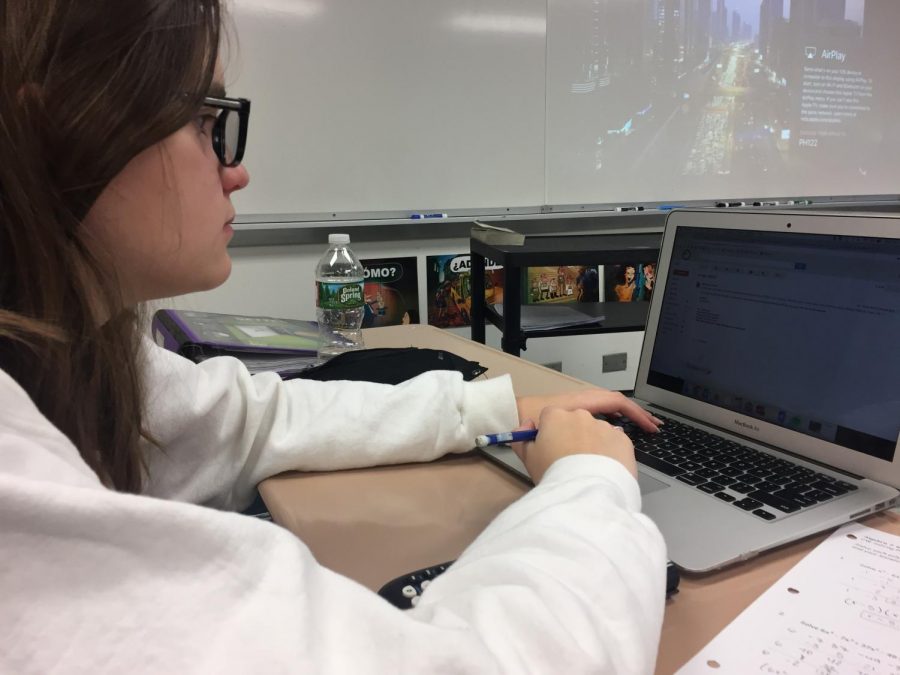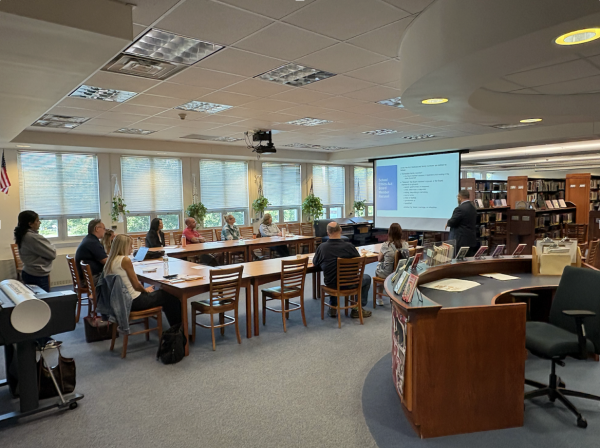FCC Votes to Repeal Net Neutrality Laws: What Does It Mean?
What if it cost an additional fee more to stream videos? What if it took a determined amount of time to load content based on your internet provider?
On Thursday, December 14, the FCC voted to repeal net neutrality rules implemented by the Obama administration in 2015. The vote went along party lines, with three Republicans voting “yes” to the repeal and two Democrats voting “no”. If net neutrality continues to be sent on its way to the chopping block, the online authority it possesses will be passed along to ISPs (Internet Service Providers), which include companies such as Comcast, Verizon, and AT&T.
Such a power transfer will transform the internet superhighway, creating “fast lanes” and “slow lanes” for certain websites depending on one’s internet provider. Known as paid prioritization, internet providers will be able to choose the speed in which content is transferred through the internet. In addition to disrupting the transmission of the content, they would also be able to block it. Also included in the FCC’s repeal was a rule prohibiting internet providers from prioritizing their own content.
What’s more, companies would be able to charge more for online services; for instance, one may have to pay more money in order to stream videos on Netflix, read the news on NBC, catch a ride through Uber, or post photos on Instagram at the current speed these tasks can be completed at.
The FCC chairman who initially proposed dismantling net neutrality, Republican Ajit Pai, refers to his plan as “restoring internet freedom.” He also spoke of it as “helping consumers and promoting competition.” However, according to many Hills students, it’s the exact opposite. Several students protested Pai’s proposal by posting messages on social media accounts, texting their representatives, and bringing it up for discussion throughout the school day.
“I think getting rid of net neutrality will be a bad idea to act upon,” Freshman Jackie Petrosino said. “Net neutrality is freedom of speech and is a right that shouldn’t be taken away.”
In agreement with Ms. Petrosino, an anonymous Hills student also passionately gave her opinion on the issue. “The deliverance and consumption of information throughout social media platforms aids in broadening and strengthening global arts, sciences, and relations. The repeal of net neutrality is also the repeal of the prime purpose of social media platforms.”
But now that the FCC voted to repeal net neutrality rules, it seems to many students that the “battle against the internet” has been lost. However, there is still a long way to go before a side wins the war.
First of all, American citizens will not be affected by the repeal overnight In fact, it may be a long and bumpy road until they see any such change, if there is one at all. Although the proposal has been successful in the FCC, the decision to repeal or not to repeal net neutrality rules is now in the hands of Congress and the courts. What’s more, even if the proposal successfully jumps past both of those hurdles, several companies have already threatened legal action.
Shortly after the repeal was voted on, Netflix warned via Twitter of a large legal battle to come.
“We’re disappointed in the decision to gut #NetNeutrality protections that ushered in an unprecedented era of innovation, creativity & civic engagement.” the mega-streaming company tweeted. “This is the beginning of a longer legal battle. Netflix stands w/ innovators, large & small, to oppose this misguided FCC order.”
Dozens of celebrities, politicians, and prominent figures also tweeted in protest of the decision, including Chris Evans, Kamala Harris, Chance the Rapper, and Bernie Sanders. Their disagreement with the repeal appears to echo 80% of Americans, according to a poll conducted by the Wireless Internet Service Providers Association. In short, many believe that the war for net neutrality is far from over, and they are willing to voice that idea in several ways.
9th grader Julia Capparelli is one example of someone who let their voice be heard. Texting her representative in Congress to reject the FCC’s proposal, Ms. Capparelli said that “by taking away net neutrality, millions of families across our country will suffer financially. Although it may seem like these companies will make a larger sum of money, middle class and poor families may not be able to afford the prices to visit each individual website.” Bringing up a prominent and debated fact about the repeal, Ms. Capparelli believes that the decision to end net neutrality is “both alarming and concerning.”
“Please take my message into consideration.” she pleaded along with millions of Americans.
A common point of agreement for both sides is that the internet landscape will be different without net neutrality. Gradually, certain websites will load faster than others; Bing could load faster than Google, Hulu could load faster than Netflix, Twitter could load faster than Facebook. To achieve faster loading speeds for certain websites, one will have to pay a price determined by their internet provider, bringing a whole new set of challenges for rising companies. The next Amazon, or the next Instagram, could have trouble reaching the levels that their counterparts of today’s internet have.
In general net neutrality is on a potentially long and bumpy way to the cutting board. Just like nature, the internet will constantly evolve in good or bad ways. It is up to the user to decide if they are willing to adapt to that change.

Jared Mitovich joined the Trailblazer his freshman year as a staff writer. He has helped manage the Trailblazer's social media since his sophomore year, and in his junior year he edited the Opinion section. Now in his final year of high school, Mitovich is looking forward to working with Mackenzie Blowers as Editor-in-Chief along with the entire Trailblazer staff. You can follow him on Twitter at @jmitovich!
Fun fact: Mitovich once met a presidential candidate.












































